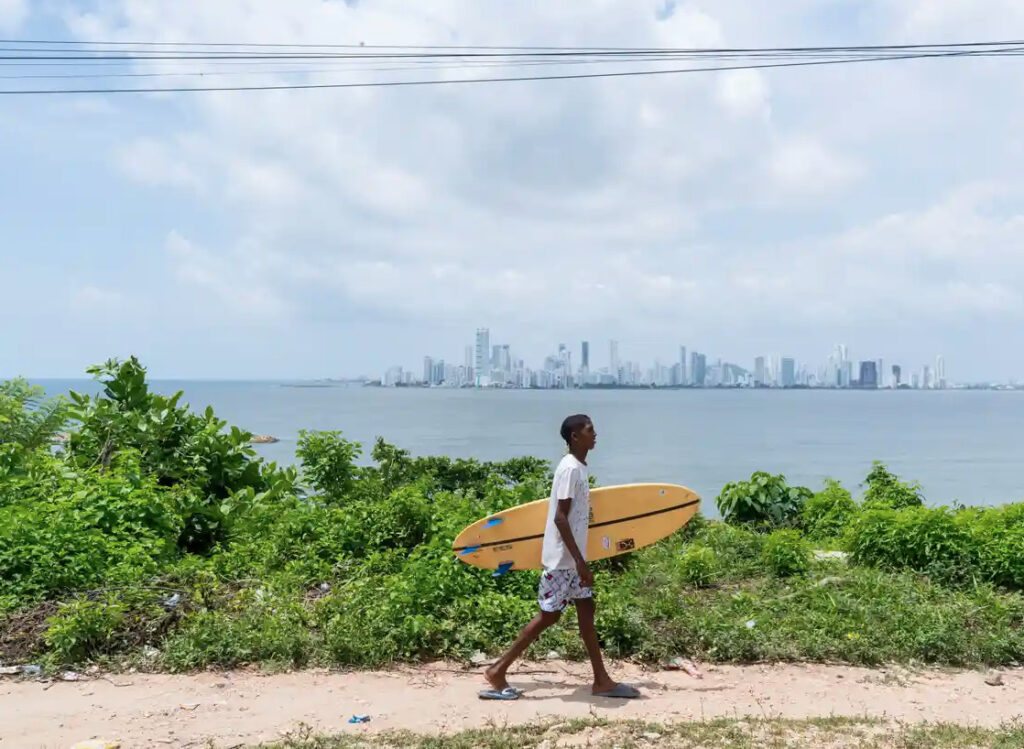From The Guardian
As the morning sun beats down on the Caribbean island of Tierra Bomba in Colombia, a group of schoolchildren heads towards the beach, with two carrying surfboards over their heads. The children, many of whom are barefoot, meander through the town, also called Tierra Bomba, down unkempt and littered dirt roads, past colourful tin-roofed homes and makeshift clotheslines.
As they near the beach, the spartan concrete houses give way to palm-thatched bungalows with swimming pools overlooking the sea, flanked by colourful flowers. Playa Linda’s sands are dotted with bars, parasols and loungers, the waters crisscrossed by darting jetskis.
The children excitedly bicker over the pair of surfboards as they begin their weekly lesson. One attempts to use a floating tree trunk as a makeshift board.

The surfing lessons are organised by the Amigos del Mar foundation, a local group that provides social support and teaches water sports to the community while also tackling one of the island’s biggest problems: rubbish.
In Tierra Bomba, plastic bottle caps, bags, wrappers, toys and other plastic waste constantly washes up on the white sand beaches, where it accumulates due to the lack of adequate waste collection services.
Amigos del Mar has set up the Olas Paz programme (known as the Clean Wave Project in English), transforming the thousands of plastic bottle caps that pollute Tierra Bomba into surfboard fins.
Last year, the organisation collected more than 7,000 bottle caps through beach cleaning programmes and by encouraging the local community to collect the caps themselves. Each surf fin comprises about 18 bottle caps, ground into tiny pieces, then melted and moulded into shape.
“The idea was that the people from Tierra Bomba, who had never picked up rubbish or recycled before, would start down this path,” says Pedro Salazar, director and founder of Amigos del Mar. “It is difficult in communities with other problems to talk about environmental education and try to change their minds on environmental issues.”
The allure of surfing, however, helps. For the children to participate in the weekly lesson, they must attend all their school classes – which include learning about the environment – throughout the week, an initiative introduced to bolster local education.
Juan José Silva, the children’s surfing instructor and himself a former student of the foundation, says: “Surf helps a lot as there are people here that have gotten lost down bad paths for not having something to distract them.

Read more here
